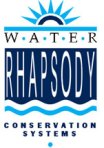In Colorado, Catching Raindrops Can Make You an Outlaw
By STEPHANIE SIMON
DENVER — Every raincloud that passes over her eastern Colorado ranch tempts state Rep. Marsha Looper to break the law.
A long, hard drought has settled across the land, and on those rare occasions when the sky opens, Ms. Looper longs to set out some rain barrels to collect the bounty for future use. She’d like to use the rain to grow hothouse tomatoes. But she refrains.
“I don’t want to get thrown in jail,” she explains.
It is, in fact, illegal in Colorado to collect rainwater. State law is vague about the penalties, except to say that violators can be taken to court and ordered to pay damages. The state lacks the resources for vigorous enforcement and fines are extremely rare, officials say. Still, the law is the law — and so Ms. Looper has set out to change it. This might just be her year.
Colorado, like most Western states, lives by a rigid and byzantine knot of water laws. Vast quantities of river water are made available, free of charge, to a variety of public and private interests, including oil companies, ski resorts, fire districts and breweries. The international food conglomerate Nestlé has applied for a permit to draw water from a Colorado aquifer and sell it in plastic bottles under its Arrowhead brand.
Those appropriations are made under a seniority system based on first-come first-serve claims staked out as far back as the 1850s. Colorado law explicitly states that every drop of moisture suspended in the atmosphere must be divvied up according to those claims. That means each drop must be allowed to hit the ground and seep through the watershed into distant rivers, where it can be doled out to claimants ranging from alfalfa farmers to ExxonMobil.
Ms. Looper, a Republican, thinks that’s nuts. “They own every raindrop that falls out of the sky? Just ridiculous,” she says.
With drought widespread across the West, many cities outside Colorado are encouraging rain harvesting through tax credits, rain-barrel subsidies, even building codes that require rain-catching cisterns in new developments. The membership of the American Rainwater Catchment Systems Association — a trade group that represents any company or individual interested in the practice — has jumped from less than 100 to nearly 600 in just two years.
But in Colorado and Utah, the only other state with a blanket ban on rain harvest, powerful forces are determined to continue limiting access to precipitation.
Setting a barrel on the lawn to recycle rain “sounds nice and efficient, but in my opinion, under Colorado law, that is theft,” says Glenn Porzak, a lawyer who specializes in water-rights claims. “That rainwater is spoken for.”
True, most people who store rain water will eventually dump it on lawns and gardens — exactly where it would have fallen in the first place. But they are likely to do that during dry seasons when thirsty plants suck up most of the water, and very little is left to work its way through the water basin and into rivers.
A hydrology study commissioned in 2007 by several Colorado water districts found that just 3% of the rain falling on undeveloped land makes it back into the stream system in a dry year, compared with 15% in a wet year. (In developed areas, those percentages are typically much higher, because the rain washes into storm drains, which often dump into streams.)
A ban on rainwater harvesting “makes no sense to people, because rain seems ubiquitous,” says Mo McBroom, policy director of the Washington Environmental Council. “They’re like, ‘Do I have to have an air right to breathe?’ ” Ms. McBroom responds that one rain barrel won’t hurt anyone — but hundreds of thousands of 5,000-gallon cisterns could threaten the livelihoods of all who depend on the West’s mighty rivers.
Farmers rely on rain-fed river water to grow food; utilities need it to produce electricity; industries need it to run factories — and cities need it to provide drinking water to residents. Fish need healthy rivers, too, of course. Some environmentalists fear that diverting downpours to cisterns would threaten aquatic habitats.
Washington allows rainwater harvesting only in a few areas, including Seattle and the San Juan Islands, where some residents have spent $50,000 or more on 10,000-gallon rain storage tanks and filtration systems. Efforts to expand the practice statewide have failed several years in a row because the varied interests can’t agree on how much precipitation individuals should be allowed to store. A bid to lift the ban in Utah died in the legislature this month. In Colorado, however, Ms. Looper and a fellow rain rebel, Democratic state Sen. Chris Romer, have crafted bills so modest in scope that they have gained widespread support.
One bill would let rural residents not served by a municipal water system store rain for fire protection, livestock feed and household uses. A second bill authorizes several new developments to capture and reuse rain, so long as the builders track how much water they divert from the state’s natural waterways.
Ms. Looper acknowledges that her bills still keep rain harvesting off limits to the majority of Colorado residents. But she says it’s the best she can hope for in a state that adheres faithfully to the old adage of Western life: “Whiskey is for drinking. Water is for fighting.”





Leave a comment